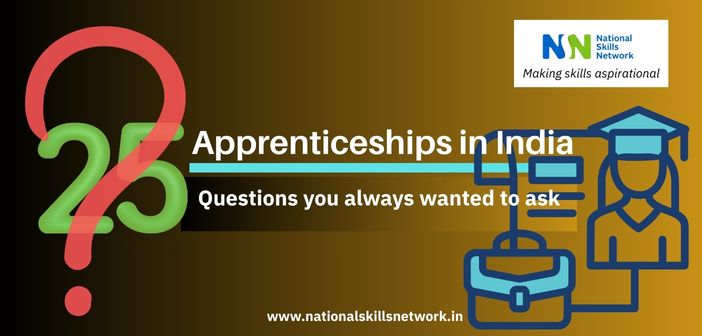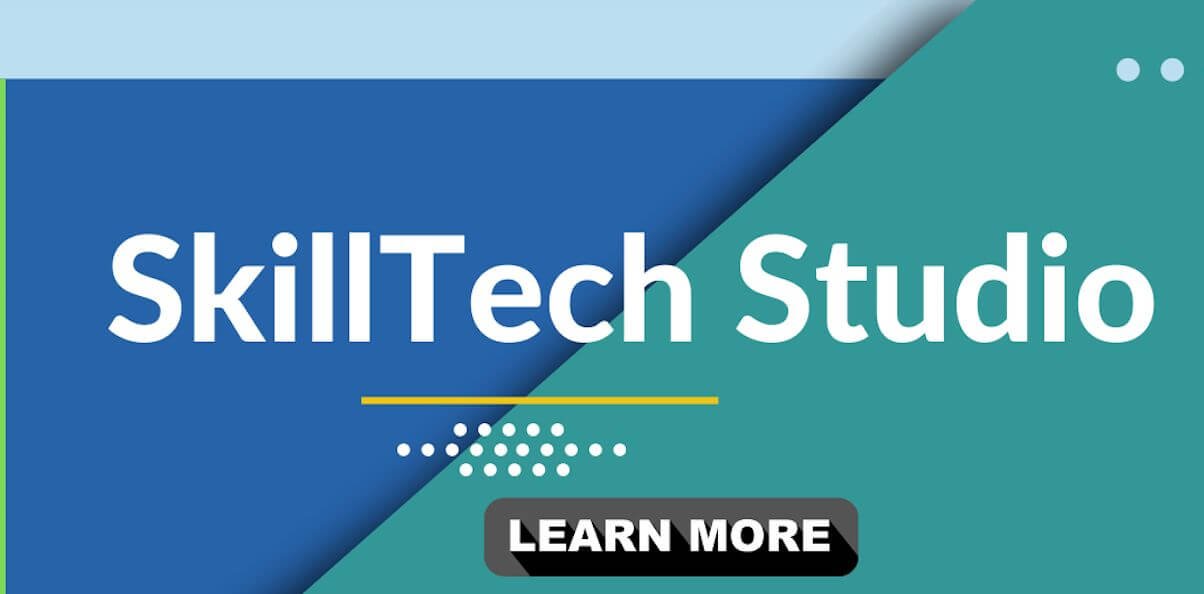India’s apprenticeship landscape is undergoing major reforms. Once seen as rigid and burdensome compliance for the industry, today apprenticeships are being redefined as a strategic and aspirational pathway to employment.
With substantial stipend hikes, the formal introduction of degree apprenticeships, and new digital systems, the government and industry are working together to make apprenticeships a preferred choice for young talent.
The Ministry of Skill Development and Entrepreneurship (MSDE) recently increased the minimum stipend from a range of ₹5,000–₹9,000 to ₹6,800–₹12,300, depending on the educational qualification of the apprentice . For example, a diploma holder can earn up to ₹12,300 per month, while a graduate apprentice may receive up to ₹13,500.
Yet, many questions may arise and we hesitate to ask. What exactly does an apprenticeship entail? How is it different from a job? What are the real benefits for a young professional? How does industry participate in driving apprenticeships?
This article answers 25 practical questions that many learners, parents, and employers have, to help you navigate the emerging world of apprenticeships in India.

1. What’s the fundamental difference between an apprenticeship and a regular job or internship?
A. An apprenticeship combines formal training and on-the-job experience, for early exposure to the world of work. Unlike an internship, which is typically short-term and project-based, an apprenticeship is a structured program that provides a recognized qualification and a clear pathway to employment. It also mandates a stipend, following the ‘earn-while-you-learn’ model of work integrated education.
2. Is an apprenticeship a debt-free way to get industry-integrated higher education?
A. Yes. Apprenticeships provide education and training without the financial burden of student loans, making them an appealing and financially viable option for young people. In fact, it helps students financially, in a small way through the stipend.
3. What is the eligibility for an apprenticeship?
A. Eligibility varies by apprenticeship and it’s mostly intended for fresh candidates. Some require specific academic qualifications, while others are open to freshers. In general, you should have at least 10th or 12th standard education, basic industry-relevant skills, and a willingness to learn and commit to the program.
4. Do apprentices get paid? How much?
A. Absolutely. Apprentices receive a regular monthly stipend. The Ministry of Skill Development and Entrepreneurship (MSDE) recently increased the minimum stipend from a range of ₹5,000–₹9,000 to ₹6,800–₹12,300, depending on the educational qualification of the apprentice . For example, a diploma holder can earn up to ₹12,300 per month, while a graduate apprentice may receive up to ₹13,500
5. How long does an apprenticeship last?
A. The duration of an apprenticeship can vary widely depending on the industry and the specific program. Typically, short-term apprenticeships are designed for six months while others last between one to three years. During this time, you’ll split your time between working and studying.
6. What is the certificate we get after apprenticeship?
A. After successful completion of the apprenticeship under NAPS, the candidate will be awarded a National Apprenticeship Certificate (under the National Council for Vocational Training – NCVT) after passing the All India Trade Test (AITT) for trade apprentices. Whereas under NATS, a Certificate of Proficiency is issued by the Government of India through the Board of Apprenticeship Training (BOAT).
7. Can I get a formal degree through an apprenticeship?
A. Yes through the Apprenticeship Embedded Degree Programs (AEDP). The new rules officially introduce “degree apprenticeship,” a model that integrates apprenticeships as a core component of the curriculum. This allows students to earn a degree (for example, B.Voc or any skills-integrated, vocational degree) while simultaneously gaining practical, industry-relevant experience.
8. How will new apprenticeships help bridge the gap between education and employment?
A. The new model aims to address the skills gap by offering a structured pathway to employment. It provides hands-on, real-world experience and a chance to develop in-demand skills in a live industry setting. This direct link between academic qualifications and workplace readiness can gradually build a talent pool for the industry and enhance employability.
9. How do I find and apply for an apprenticeship? Is there an official portal?
A. The primary platform for finding opportunities is the National Apprenticeship Promotion Scheme (NAPS) portal at apprenticeshipindia.gov.in. The portal manages the entire apprenticeship lifecycle, from registration to certification.
You can register on National Apprenticeship Training Scheme (NATS) if you have a Diploma or Graduate certificate.
10. What are the key steps in the online application process for an apprentice?
A. First, you create a profile on the NAPS portal.Then, you can browse and apply to apprenticeship opportunities posted by registered employers. Once you receive an offer, you accept it online and digitally sign the apprenticeship agreement with the company.
11. Can someone take up multiple apprenticeships?
A. No, apprenticeship is generally restricted and it is meant for freshers to get industry experience through formal training. Hence one cannot pursue more than one apprenticeship at the same time.
12. What is the government doing to make apprenticeships more attractive?
A. With the narrative of ‘facilitation over fear’, there’s a conscious shift in making apprenticeships more attractive, inclusive, and rewarding for all the stakeholders. This includes promoting degree apprenticeships, enabling remote training, expanding industry coverage, and ensuring inclusivity for persons with benchmark disabilities .
13. What is the National Apprenticeship Promotion Scheme (NAPS) and how does it work?
A. NAPS is a government initiative that provides financial incentives and advocacy support to companies that engage apprentices. The government offers partial stipend support, providing up to 25% of the prescribed stipend, capped at ₹1,500 per month per apprentice .
14. Can I do an apprenticeship from a remote or virtual location?
A. Yes. The updated Apprenticeship Rules permit remote or virtual training formats, which removes geographical limitations and expands the reach of the programs. This also depends on the nature of work and the industry, for example, it does not apply to training in the manufacturing sector. However, it may work for IT and services types of apprenticeships.
15. How does the financial support from the government work?
A. Under NAPS, the government’s contribution of up to ₹1,500 per month is paid directly into the apprentice’s Aadhaar-seeded bank account through a Direct Benefit Transfer (DBT) system . The remaining stipend is paid by the company.
16. What is Pradhan Mantri National Apprenticeship Mela (PM-NAM)?
A. PM-NAM is a large-scale event organized by the government to provide a single platform for candidates and establishments to connect, register, and find apprenticeship opportunities .
17. How do companies benefit by hiring apprentices?
A. Hiring apprentices offers significant benefits for companies. It is a cost-effective way to acquire talent and build a talent pool, it reduces hiring and onboarding expenses. Companies can also create a customized, highly-skilled talent pipeline, leading to higher productivity, lower attrition, and a more loyal workforce with the apprentices they can absorb as employees.
18. Is it true that apprenticeships can lower a company’s hiring costs?
A. Yes. In addition to the government’s stipend subsidy, companies save on costs related to recruitment and initial training. By training a new employee from the ground up, they can also ensure a better cultural fit and higher productivity.
19. Are apprentices considered regular workers?
A. No. Under the Apprentices Act, 1961, an apprentice is considered a trainee and not a worker.This means that labor laws typically applicable to workers, such as those related to provident funds (PF) and Employees’ State Insurance (ESI), do not apply to them.
20. What is the new rule on how many apprentices a company must hire?
A. The new rules mandate that each establishment with a workforce of 30 or more must engage apprentices in a range of 2.5% to 15% of its total workforce, which includes contractual staff. For companies with 4 to 29 workers, hiring apprentices is optional.
21. Which industries are leading the way in apprentice hiring?
A. Industries with the highest intent to hire include IT & BPM, Healthcare, Electronic Systems & Electricals, Telecommunication, and BFSI. High-growth “sunrise sectors” like Drones, EV and mobility, and Global Capability Centres (GCC) are also driving significant growth.
22. Are companies actually converting apprentices into full-time employees?
A. Yes. A significant positive trend shows that about 3 in 4 organizations have a regular practice of converting apprentices into full-time employees after their training is complete.
Also read: Why Apprenticeships Are the Future of Work in India
23. Is there a preference for women apprentices in a few industry sectors?
A. There could be more opportunities for women in select sectors like Leather, IT, Healthcare, Telecom, Apparel and Retail to fulfil their Diversity and Inclusion (D&I) goals. There are also opportunities in emerging sectors like EV, drones, semiconductors etc
24. What is a Third-Party Aggregator (TPA), and why are they important?
A. TPAs are intermediaries that connect businesses with aspiring apprentices and manage the end-to-end program, from onboarding to compliance and certification. They are particularly important for MSMEs, which often lack the administrative capacity to run these programs on their own.
25. Are apprenticeships just for big companies? What about MSMEs?
A. The participation of MSMEs, which employ the bulk of India’s workforce, remains a significant challenge.For many smaller firms, the costs associated with mentoring apprentices often outweigh the government’s modest stipend subsidy.
Apprenticeships as a pathway to growth and opportunity
Apprenticeships in India are no longer on the sidelines of education and employment; they are moving to the center stage of the country’s skill development ecosystem. By combining earning with learning, practical training with academic growth, and opportunity with aspiration, apprenticeships are shaping a workforce that is both future-ready and industry-aligned.
As reforms continue and more industries adopt this model, apprenticeships will become one of the strongest pathways for India’s youth to build sustainable, rewarding careers while helping industries create a skilled, competitive workforce.














